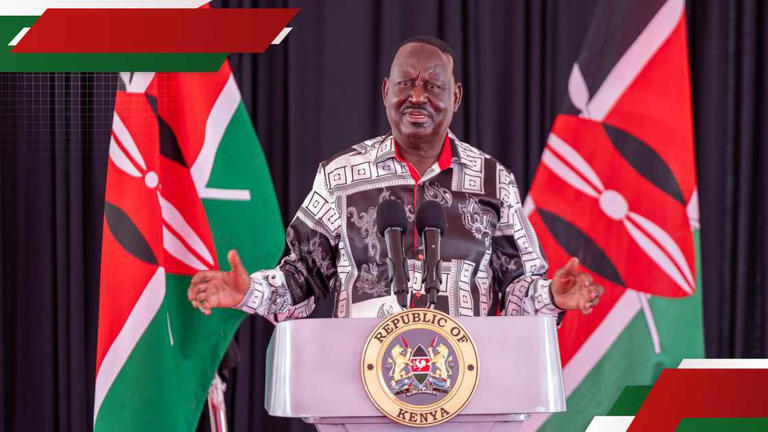As internet use surges across Africa, governments are racing to protect their digital spaces from rising threats like cybercrime, online fraud, and disinformation. In response, many have begun passing cybersecurity laws. But these laws often walk a fine line—meant to protect citizens, they can also be used to limit rights. So where does Zambia stand?
On April 8, 2025, Zambia enacted the Cyber Security Act, a sweeping piece of legislation that has sparked national and international debate. Is it a much-needed response to digital threats—or a law that gives the state too much power at the expense of civil liberties?
What’s in Zambia’s Cyber Security Act?
Zambia’s new law gives authorities wide-ranging powers to monitor digital activity. Under the Act, Information Communication Technology (ICT) companies are required to intercept and monitor all forms of digital communication, including calls, emails, and text messages, in order to detect “critical information” (BBC News, 2025). The aim is to prevent the spread of harmful content or threats to national security.
Law enforcement can also search premises and seize digital devices, as long as they have a court-issued warrant (BBC News, 2025). Penalties for violating the Act are severe ranging from large fines to prison terms of up to 15 years, and even extradition in certain cases.
Government officials argue that these powers are necessary to protect national infrastructure and prevent cybercrime. They emphasize that any surveillance activity must be authorized by a court and carried out within a legal framework (BBC News, 2025).
Why Are People Worried?
Despite these assurances, critics are deeply concerned. Civil society groups, legal professionals, and international observers argue that the law uses vague and overly broad language. What exactly qualifies as “critical information”? That’s not clearly defined, and such ambiguity can lead to abuse.
The Law Association of Zambia (LAZ) has pointed out that this lack of clarity could allow the government to target political opponents or silence dissent, all in the name of national security (Lusaka Times, 2025). The United States (US) Embassy in Zambia has also advised American citizens to be aware of increased surveillance under the new legislation (U.S. Embassy in Zambia, 2025).
While the government insists that privacy will not be violated and that surveillance will follow due process, public skepticism remains. Critics fear the law could be misused by authorities to curb freedom of speech or intimidate activists and journalists—especially given the country’s history of political tensions.
A Look at the Regional Picture: The SADC Trend
Zambia isn’t alone in this. Many countries in the Southern African Development Community (SADC) are developing or strengthening their cybersecurity laws. This trend is driven by the same challenges Zambia faces—cybercrime, data breaches, and misinformation.
For instance, South Africa’s Cybercrimes Act of 2021 includes strong penalties for digital offenses, but also emphasizes accountability and legal safeguards. Meanwhile, countries like Botswana, Namibia, and Malawi are working on similar laws, although enforcement and oversight vary.
On the flip side, countries like Tanzania and Zimbabwe have been accused of using cybersecurity laws to consolidate state power and silence dissenting voices, including journalists and opposition leaders (Freedom House, 2024).
A major issue across the region is the lack of precise legal definitions and weak judicial oversight. Many states don’t have independent data protection authorities, making it easier for governments to conduct intrusive surveillance without strong checks and balances.
Zambia must tread carefully. Following the regional trend in cybersecurity legislation doesn’t mean replicating its flaws. Instead, it offers an opportunity to show that it’s possible to fight cyber threats while still respecting individual rights.
Finding the Balance: Security vs. Civil Liberties
There’s no doubt that Zambia needs strong laws to deal with the digital threats of the modern age. But these laws must be balanced. Citizens’ rights to privacy, freedom of expression, and due process cannot be secondary considerations.
To strike the right balance, Zambia’s Cyber Security Act must be:
- Clear and narrowly defined, especially in its use of terms like “critical information.”
- Transparent in its enforcement, with surveillance activities clearly justified and monitored.
- Backed by independent oversight, such as a dedicated data protection authority.
- Grounded in constitutional principles, ensuring that no law can be used to intimidate or silence.
Without these elements, the law could drift from its stated purpose and become a tool of control rather than protection — a risk that carries deep consequences. When surveillance is unchecked, and when vague legal language leaves room for interpretation, even well-intentioned laws can be manipulated to serve political ends. History shows that security frameworks without accountability often lead to the erosion of civil liberties, not just for critics or activists, but for all citizens.
Moreover, public trust in government institutions can quickly deteriorate if people feel they are being watched without cause or recourse. Trust, once broken, is hard to rebuild—and in the digital age, where communication and organizing increasingly happen online, fear of surveillance can stifle civic engagement, journalism, and political participation
Conclusion: Zambia at a Crossroads
Zambia’s Cyber Security Act highlights a central dilemma facing many African countries: how to protect the digital realm while also preserving democratic freedoms. This isn’t just Zambia’s problem—it’s a broader regional and global issue.
The law, as it stands, shows a strong commitment to enhancing cybersecurity, but it raises serious questions about transparency, proportionality, and accountability. Whether it ultimately strengthens Zambia’s democracy or weakens it will depend on how it is implemented and who holds power to enforce it.
As other countries in the SADC region look on, Zambia has a unique opportunity to lead by example—by proving that digital security and civil liberties don’t have to be enemies.
References
BBC News. (2025, April 24). US issues Zambia travel warning over new cyber laws. https://www.bbc.com/news/articles/cj451xd0ezwo
Freedom House. (2024). Freedom in the World 2024 – Sub-Saharan Africa Overview. https://freedomhouse.org/report/freedom-world/2024/sub-saharan-africa
Lusaka Times. (2025, April 22). LAZ set to mount legal challenge against cyber laws, warns of democratic backslide. https://www.lusakatimes.com/2025/04/22/laz-set-to-mount-legal-challenge-against-cyber-laws-warns-of-democratic-backslide
South African Government. (2021). Cybercrimes Act signed into law. https://www.gov.za/speeches/cybercrimes-act-1-june-2021


